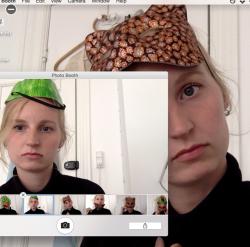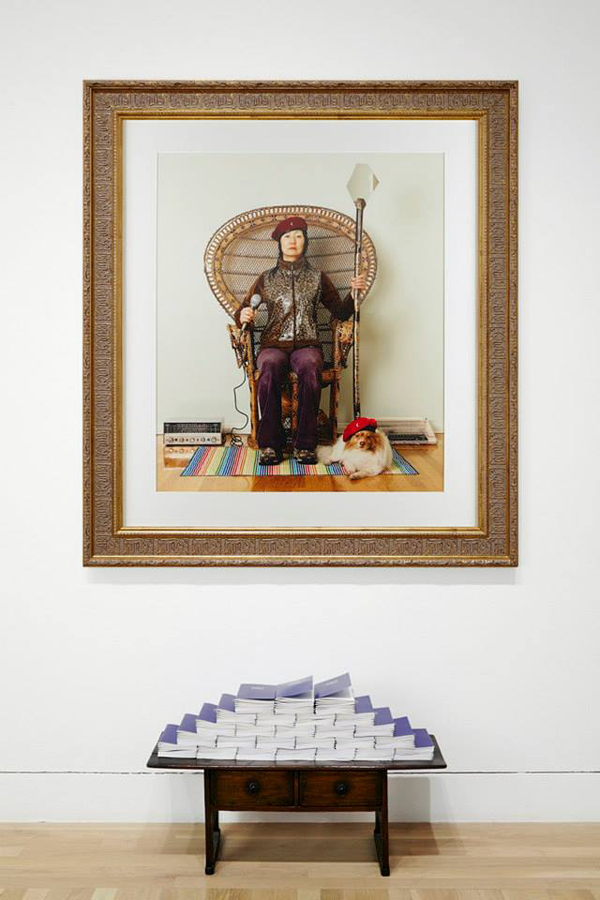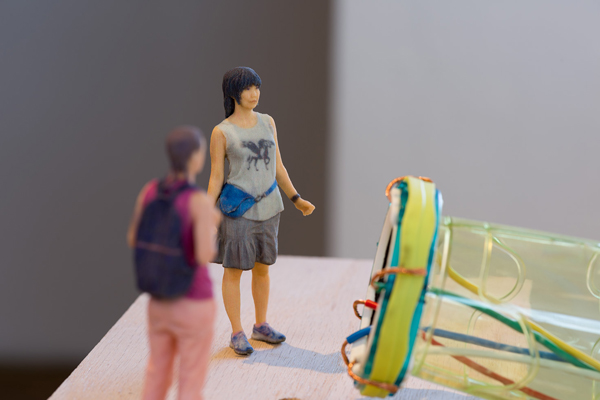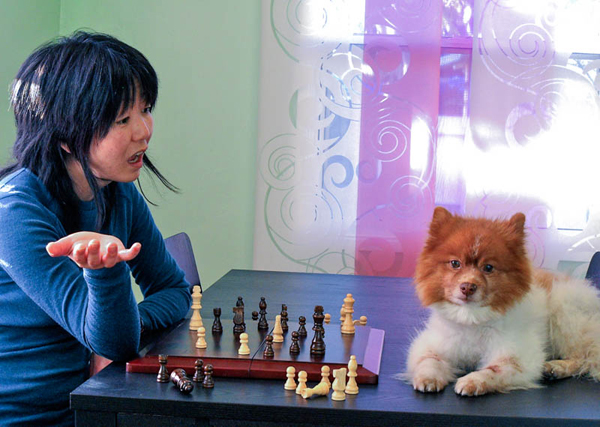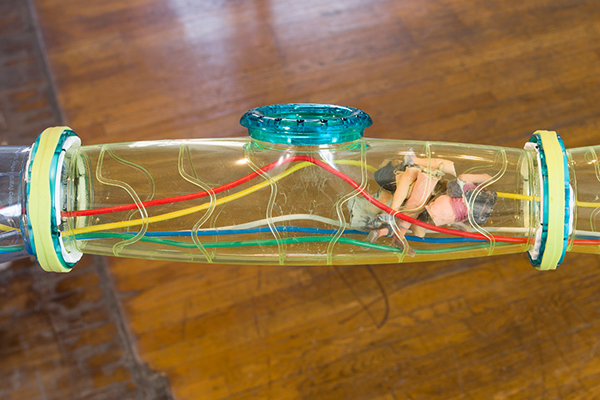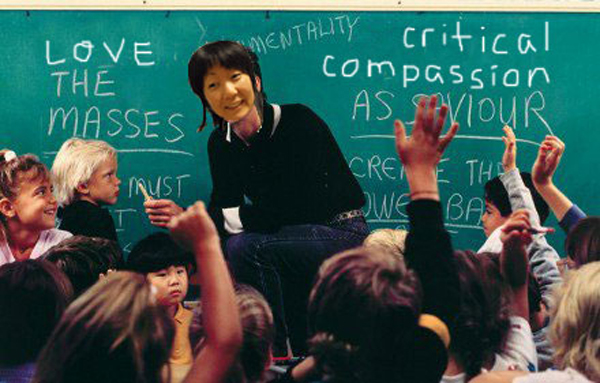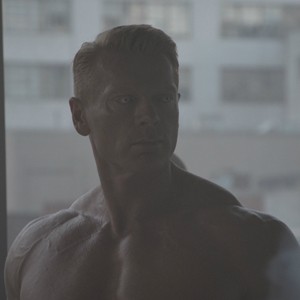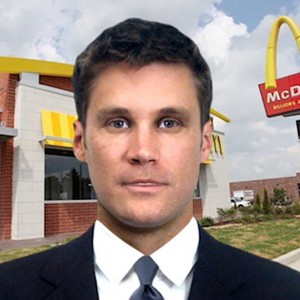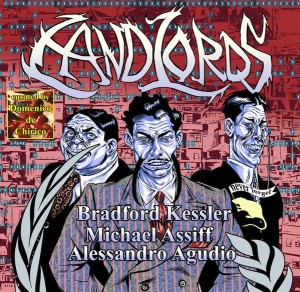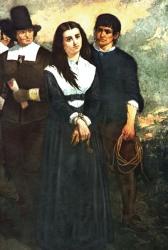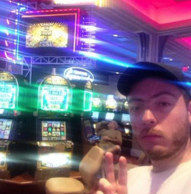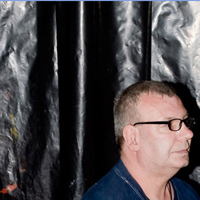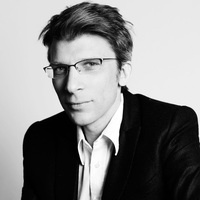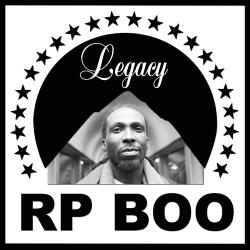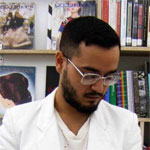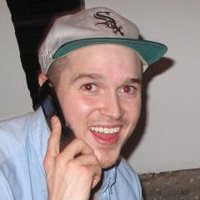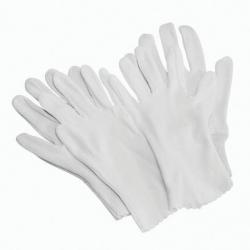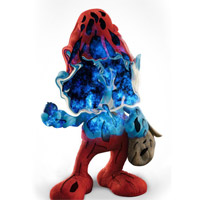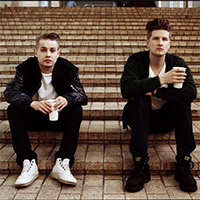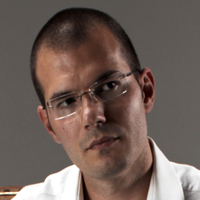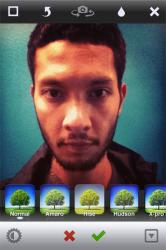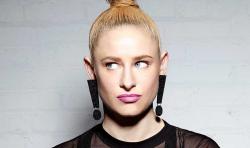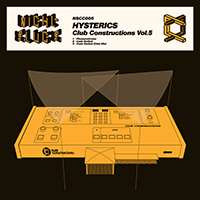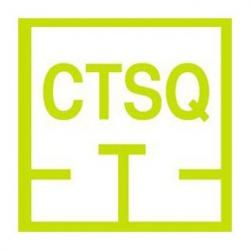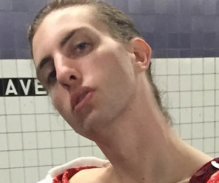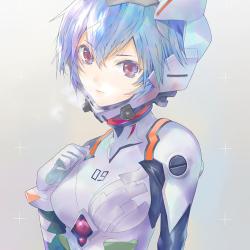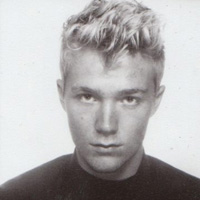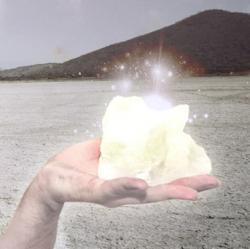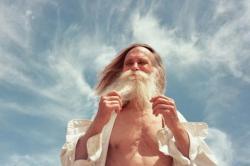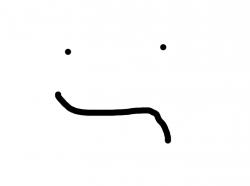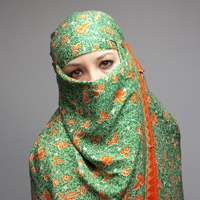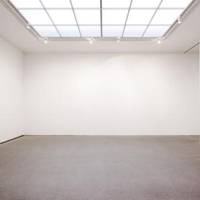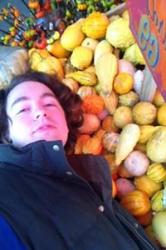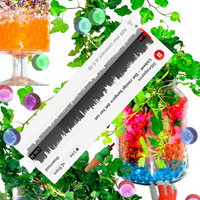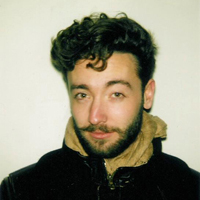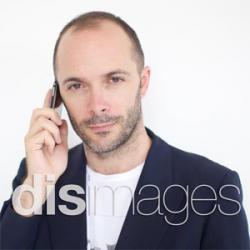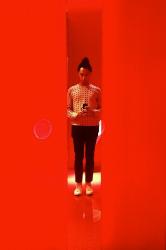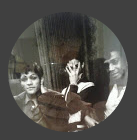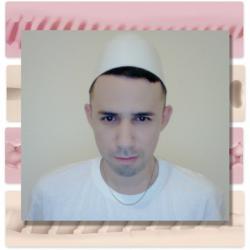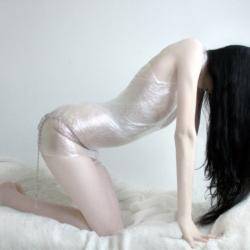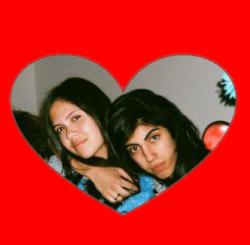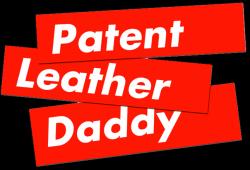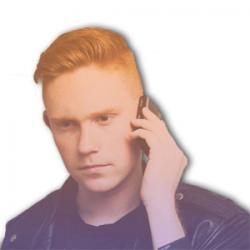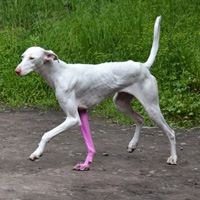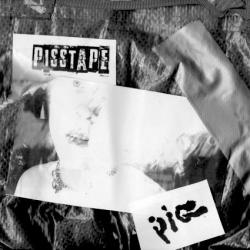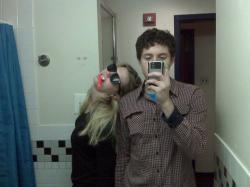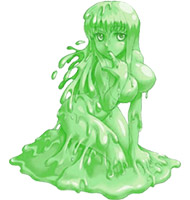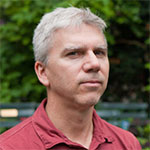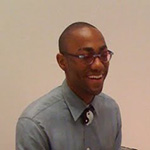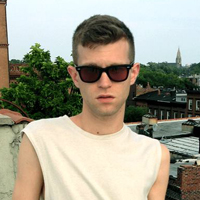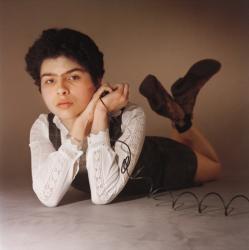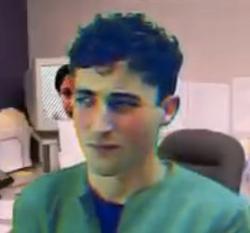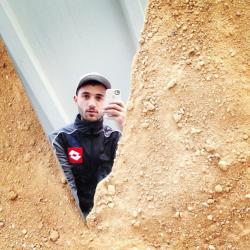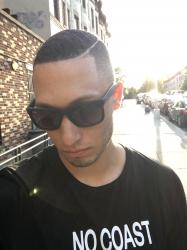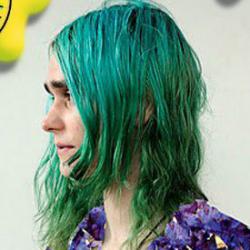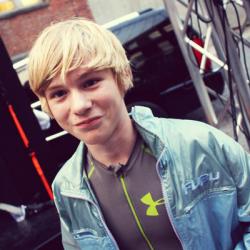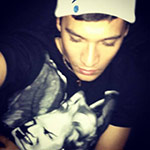OCEANS BREATHE SALTY, A one-day exhibition November 21, 2015 at CompleteBody fitness center, New York. With: Amanda Alfieri, Contemporary Cruising (Tomislav Feller and Manuel Scheiwiller), Anissa Djeziri & Mette Krebs, Lea Guldditte Hestelund, I’m Making a Boyband (Bora Kim, Karin Kuroda, Samantha Y. Shao), and Heine Kjærgaard Klausen. Curated by Mette Woller. Sound piece: Lea Guldditte Hestelund – Your Body Is Your Temple, 2015. Music: Kenton Slash Demon – Skydancer I. Photographer: Søren Aagaard. Videographer:… [read more »]
DISmiss | Jennifer Moon
Jennifer Moon is in her own words an artist, adventurer and revolutionary. With the slogan “Always for the love of continuous expansion for all on this earth and beyond!” she heralds an idea of revolution based on abundance, acceptance and above all love. Yet it’s not just a matter of self-help and feelings; Moon’s mission is clear and she wants to change the current system. With four primary factions each dedicated to a pressing topic (education, political pop culture, redistribution of wealth, science and technology) she leads us to find the first steps towards a mental and social revolution.
Moon lives and works in Los Angeles and will teach a practicum class, “Feelings for Artists,” at CalArts this spring. With her show Phoenix Rising, Part 3: laub, me, and The Revolution (The Theory of Everything) at Commonwealth & Council in LA, Moon ventures further into her idea of love as a revolutionary force, trying to unify the strands of romantic love and love of humanity with a new element: faith. Believing that revolution must come from within, Moon takes herself as the first example, exploring her own relationship in an attempt for her and her partner laub to try and expand their love for each other. I had a talk with Moon about living in a patriarchal capitalist white supremacist society, the binary systems that follow, and the importance of acceptance and love.
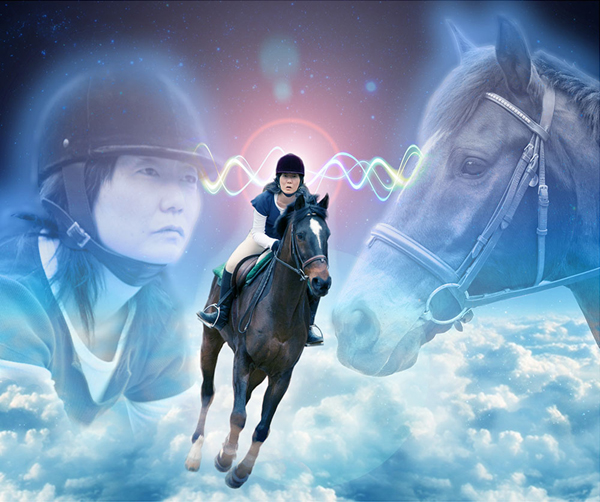
Jennifer Moon, A Story of a Girl and a Horse: The Search for Courage (from Phoenix Rising, Part 2: Eros vs. Agape), 2014
Caroline Ballegaard: How did you first come to work with the concept of revolution?
Jennifer Moon: I began working with the concept of revolution during grad school in the late ‘90s. Revolution seemed like the next logical progression in the work I was doing, which began in college with Deedra Inc. As an undergrad, I performed a lot, dressing up as various superhero-like characters and creating semi-fictitious worlds. When I got to grad school, I decided I didn’t want to pretend anymore: I wanted to become a real superhero. I turned my studio into a public superhero training center, The Facility, and put myself on a regimen to train to become a real life superhero that would go out into the world and “save” people from various forms of oppression. While failing to become a superhero, I concluded that perhaps the world didn’t need a superhero but, rather, a full-on revolution: the entire system, specifically capitalism, needed to be dethroned. I then realized I should probably write some sort of manifesto if I wanted to start a revolution. Instead, I proceeded to do drugs for the next near decade. I then planned to write the manifesto for The Revolution when I was in prison in 2008-2009, but that didn’t work out either. In October 2011, three and a half years into my sobriety, I finally wrote The Basics of The Revolution and shortly afterward Definition of Abundance: Principle 1 of The Revolution and also determined the Four Factions. I’ve come to understand and accept that things happen when they are supposed to happen. There has to be some kind of merging, an easing into or an understanding between me and the world, the universe, and the multiverse.

“Proposal for My Last Performance on Earth, Prospective Date: 2053” 2014 Fiberglass, foam, resin, wood, model train accessories, LED lights, paint, vinyl, and gold leaf H 54” x W 26”
The idea of progress as a result of acceptance, abundance and love seems opposite to former notions of revolution throughout history. Why the new definition of revolution?
Perhaps this alternative definition of revolution is also a way to provide an alternative to the idea of progress. Progress has become a belief entity, and has resulted in extreme inequity within our capitalist system that is suffering from climate changes and depleting resources, just to name a few un-expansive developments. Perhaps instead of striving for progress, we can figure out how to see each other beyond beliefs first. In this TED Talk-esque video, Jennifer Moon on Revolutionizing Revolution, I propose that true revolution can only come from a place of abundance as opposed to a place of lack. Otherwise it is reactive, and anything reactive is ultimately controlled by the very thing one is reacting against, which would make it not revolutionary but rather a product of the system, or at least contained within the system. I’m looking for ways out of this capitalist system, outside of ideas of progress, outside of beliefs, and the only way out I can envision is for us to believe we already have everything.
Any revolution is based on a wish for something better. Do you view your Four Factions as realistic or utopian?
The Four Factions are realistic in that they will be realized in this reality; though certainly driven by fantasy, magical wonder, impossibility, the unknown, and the unimaginable. Utopia, as in nowhere and no place, is a drive. So the Four Factions could be utopian too, driven by a certain utopian-like energy that can never be fully realized. And even though I personally often “wish for something better,” or more wondrous, more magical, more fantastical, or more impossible, I’m not sure revolution does. Revolution, today and historically, is asking for equality, to not be oppressed and repressed. I suppose that is a “wish for something better” or perhaps it’s simply asking to be seen as equal humans.
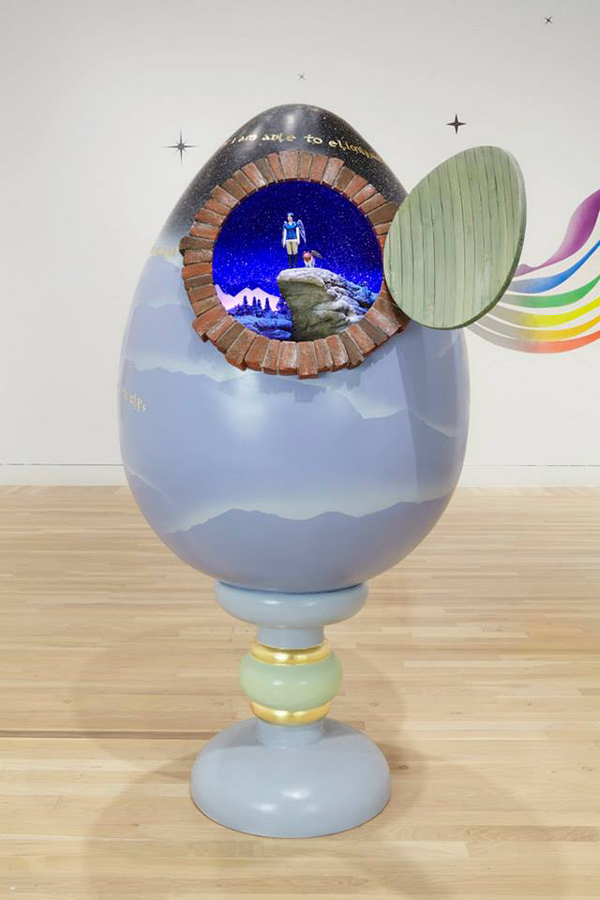
Jennifer Moon, Proposal for My Last Performance on Earth, Prospective Date: 2053 (from Phoenix Rising, Part 2: Eros vs. Agape), 2014, Fiberglass, foam, resin, wood, model train accessories, LED lights, paint, vinyl, and gold leaf.
How do you envision change in your philosophy of acceptance? How are we to change society if one is to accept everything as it is?
Footnote 10 of the chapter “Definition of Abundance” in Definition of Abundance: Principle 1 of The Revolution addresses this question directly. As explained in the footnote, I certainly had issues with acceptance, in fact, I found it offensive. That was because I thought of acceptance as an end, i.e. I accept something as it is and that’s the end of that, for acceptance allows everything I am accepting to continue to exist unchanged. I’ve learned that acceptance is actually a stimulus for change, that acceptance enables true change. (As a side note I use the word true a lot, and what I mean by true is something that could possibly exist outside, or beyond, or at least resist being co-opted into, this all-encompassing system that we’re in.) What I’ve learned is that things don’t end with acceptance, for acceptance doesn’t cease movement. Acceptance is, in fact, the first necessary step to truly change anything on a structural level, to facilitate continuous expansion and movement. If I don’t accept the reality of a given moment, which doesn’t mean I have to like it or agree with it, I will be perpetually caught in resistance, trapped in an unchanging state of fighting reality, being controlled by the very thing I am fighting. If I accept that whatever is happening is the reality of the moment, I am able to put space around the situation and remove myself from inside of it, so I can bring in opportunities for expansion and actually change reality.
Do you see art as a product of abundance? Or lack? What is the role of art in society today and in the future you fight for?
Just like almost anything, art can be a product of abundance or lack or both. I’ve certainly produced art from a place of lack and a place of abundance, and sometimes it starts off as a manifestation of abundance and then later I use it to fill a feeling of lack. For example, the show that’s currently up at Commonwealth & Council, Phoenix Rising, Part 3: laub, me, and The Revolution (The Theory of Everything), arose from a place of abundance. I believed that the ideas for the show would come to me, even as I was approaching a month before the opening and still didn’t know exactly what the show was going to be about. Instead of panicking (I did stress for sure at times!), I continually shifted my focus back on faith, being open and paying attention to the world around me, so that I would be available for something to come. I also had to accept that perhaps nothing would come and I would end up showing an empty room.
However now that the show is up, I find myself obsessively Googling my name to see if there has been any writeups about the show, because there’s a part of me that still feels lack and needs validation, and also because I need money so I can survive in this current system, which means I need some sort of job, and I have this belief entity telling me that if I get a good review then maybe someone will buy the work, and then I won’t have to get a job. Now, all this other shite is coming from a place of lack. We live in a system that requires people to continually be in a state of lack in order for it to survive, which makes it difficult to operate from a place of abundance at all times. I wonder how much of our feelings of lack would subside and altogether disappear, if we ever found a way out of this system. This is the primary aim of The Revolution: to find a way out, for all of us, so that we can all live a life of continuous expansion, a life, an existence, an understanding, a connection, beyond anything we can currently imagine.
The role of art, for me, is to stimulate people to question the way we generally perceive something, and become aware of the various systems we use to understand and make sense of ourselves, others, and the world we live in. As of now, the art-engaged public is quite small. Faction 2 of The Revolution aims to create a political pop culture and widen the reach of art and its ability to encourage people to look at the world critically. I remember Mike Kelley once saying to me (he was the head of my thesis committee at Pasadena Art Center College of Design) that by definition popular culture can’t be political. We disagreed on this and maybe Mike is correct, and that’s fine-we can call it something else once pop culture becomes politically motivated and socially conscious. Art as well may be called something else in the future once it becomes mainstream without being co-opted and stylized. It’s about movement and how it can create openings for something new or unimaginable to come in. Once art moves into popular culture, the realm of art becomes open for something new to come in. Just like the movement of fantasy into reality: once fantasy becomes reality, the realm of fantasy will become open for something new to come in beyond anything we can currently imagine. This is continuous expansion.
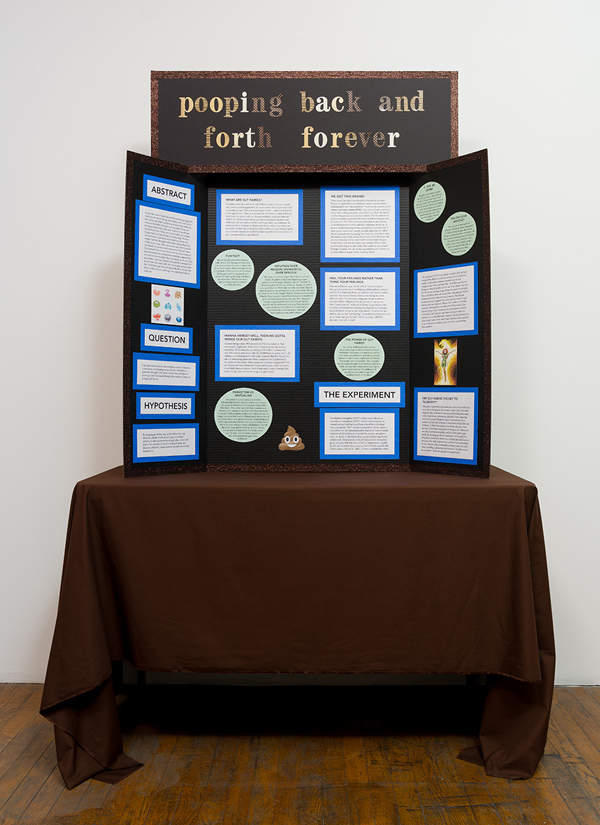
Jennifer Moon, Phoenix Rising, Part 3: laub, me, and The Revolution (The Theory of Everything), 2015, Installation view
You have a strong personality that comes across in your artistic practice. One could call you the leader of the revolution. Are you comfortable with that role? When did you first become aware that you have always been abundant with power?
If someone wants to call me the leader of The Revolution, sure, I’ll be comfortable with that because that’s how that person needs to see me for themselves. I don’t see myself in that role, for various reasons. One of them being that the things I talk about are not new; they don’t originate from me. Many are talking about similar things and have been since long before I existed. Plus I’m interested in ways out of the current system, out of belief entities, and the idea of a leader is definitely a belief entity rooted in hierarchies and binaries. I am certainly aware that my personality or self or narrative or presence is very strong in my work, and the heavy use of and representation of self in relation to something like revolution can be perceived or worked into the system of belief entities. Yet since I currently exist in this body or embodied spirit or collective of microbial beings or whatever you want to call it, I don’t know who else to use other than myself. And this may change in the very near future.
I know I used the word power in relation to abundance, and this use of the word is a very specific reference to the last principle listed in Foucault’s principles to the art of living counter to all forms of fascism, which is “[do] not become enamored of power.” In footnote 4 of the chapter “The Basics” in Definition of Abundance: Principle 1 of The Revolution, I write, “[once] you come to this profound awareness—that you have always been abundant with power…” This is what I believe you are referencing. Power as a concept is fine, though it is a belief entity that has been used to oppress people and create hierarchies. I think instead I’d like to rephrase your question as: When did I first become aware that I am enough for the mere fact that I exist? And the answer to that is probably when I got sober in 2008 and started working with life coach Michael Blomsterberg. Then began my journey to know that I am enough for no other reason than I exist, and this journey continues today. If I think about it, it’s some fucked up shit not knowing that I am enough for my existence, and most of us feel this way because that’s what we’re told, one way or another, as soon as we enter this world up until the day we leave. Now that’s a powerful belief entity.
The need for self-love figures strongly in your work, but I wonder how you reconcile this need with ‘darker’ or more dangerous impulses that individuals have. Should I still love my flaws when they lead me to hurt others, for example?
Yes, if you don’t learn to love your “flaws” or the parts of yourself that lead you to hurt others, you will continue to hurt others and yourself. These parts of ourselves that one might label as “darker” or “more dangerous” deserve just as much attention as the parts that we label as “good” or “benign.” We place everything in hierarchies and binaries such as good/bad, safe/dangerous, lightness/darkness, etc. These are all belief entities which prevent us from looking at all parts of ourselves (and others) with love and understanding. As Michael Blomsterberg would say, there are no good feelings or bad feelings; they are all just feelings. And all feelings exist to tell us something and we need to give them all equal attention; befriend all of them and, if we can, learn to love them. The parts of ourselves we deem as unsavory exist to tell us something, in fact they probably need the most attention and love. If not, those feelings you label as bad or evil will become just that: bad and evil.
In your latest video, 3CE: A Relational Love Odyssey, your character speaks of overcoming inherited beliefs and value systems to uncover ‘who we really are’. Can you elaborate on this idea: how can we separate who we are from the patriarchal capitalist white supremacist society we were born into and have constructed our identity under? It can seem like a paradox, or an impossible task. What is left of ‘who we are’ once we strip away the influences, whether negative or positive, of the environment in which we came of age?
I don’t know who we are beyond our beliefs and that’s the exciting part. It will be beyond what we can currently understand or imagine, beyond language, because knowing, impossibility, and paradoxes are all beliefs. It will truly be an outside to the all-encompassing and seemingly inescapable system we exist in today. Perhaps knowing ourselves outside of beliefs is an impossible task or a paradox, but I certainly love existing within impossible things, and I like an expansive paradox. And it starts by paying attention to how we interact with one another and by identifying the belief entities that are dictating our perception and interactions with one another. Once we become aware of them and exorcise them one by one, we can begin to experience glimpses of what it may be like to exist in a world of no beliefs. This is no easy task for sure!
What are your thoughts on collaboration: how have you experienced it in your own practice, and how important do you think it is?
Collaboration is definitely an integral part of my practice, and in life, revolution, and the creation of new worlds. Any large-scale project, whether it’s a movie or the construction of a house, requires multiple people with different talents/superpowers to be realized. Since undergrad I’ve worked on large, involved projects and the only way I can actualize them is with the help of other people.
I’ve been thinking more about collaboration and how to engage in a more true or equal collaboration with someone(s) since working on the last show with laub. For example, my installation Phoenix Rising, Part 2: Eros vs. Agape (part of Made in L.A. 2014), had at least ten different people helping create all the pieces, and though they were all listed in the wall credits, the pieces are still under my name.
When laub and I started working on Phoenix Rising, Part 3, I asked laub if he wanted to be listed as one of the artists, so it would read “Jennifer Moon and laub | Phoenix Rising, Part 3…,” and he said no. Even though laub made the JLS (Jennifer laub Smasher), blew all the glass for the GFT (Gut Fairies Transplant), and had complete creative freedom over both pieces, he still felt like these were “my ideas” (even though I got the idea of gut fairies from laub’s solo show, also exhibited at Commonwealth & Council). He felt that my narrative continued in Phoenix Rising, Part 3, a narrative which existed before we met. laub is interested in questioning the ownership or authorship prescribed to an artist, as well as ways of being of service, both additional reasons why he opted out of being listed as a collaborating artist. There is this thing in art where ideas seem to take precedence over the making or actualizing of ideas, and there is also a thing about the ownership of ideas and work. Neither of us have worked in true collaborations before, so we are both excited about our future projects together, which we have a few of lined up already!
You speak of Love, and of relationships and emotional intelligence. Do you find these to be topics that are not approached enough in the contemporary art world?
I feel like I don’t know enough about the contemporary art world to say how often those subjects are approached, and I guess it depends on what contemporary art world we are talking about. I do know that the people around me, many of them artists, talk a lot about love, relationships, and emotional intelligence, and since many conversations revolve around these topics, I would think they somehow enter people’s work. I’m teaching a practicum class with laub at CalArts in January called “Feelings for Artists,” and we are both super excited about it. I don’t think people really know how to process emotions. I certainly didn’t know how to process emotions because I wasn’t taught anything about emotions in my primary public school. There’s no real acknowledgment of feelings, what they are, where they come from, what we do with them, etc. I recently mentioned this feelings class to some grad students at CalArts, and they expressed excitement about it (though the class is primarily offered to undergrads). This tells me that whether or not the topics of love, relationships, and emotional intelligence are approached enough in the art world, people want to.
Your work intersects a lot with science: do you have a scientific background? It seems like your work embodies the idea that science can give us facts, but only art and culture can then analyze and comment on these facts in a meaningful way, that can inspire social change.
I have no scientific background. In fact, I just learned about quantum mechanics and how gravity works (i.e., general relativity or the curvature of spacetime) a few months ago while I was at a residency program at Ucross Foundation. Quantum mechanics is some cool ass, trippy shit and it definitely points to an outside of the system; though the system has discovered a way to fix or measure quantum mechanics within its bounds in order to maintain itself. Scientists and artists are very similar in their commitment to inquiry and spirit of fascination, wonder, and playfulness. In addition, scientists, especially theoretical physicists, are insanely imaginative. I mean, whoever thought of string theory as a possible Theory of Everything is way fantastical. Scientists are like artists in that they create new worlds, and being an artist I have at times considered my approach to art akin to science.
It is generally assumed that science gives us facts, but if you look at the history of science (and of life), these so called facts become inaccurate the more we learn about our universe (or mulitverse). Everything that we currently know is only 4% of the universe, the remaining 96% is what scientists call dark matter and dark energy. Just imagine how many scientific facts will turn out to be inaccurate once our reality expands to include things that can never be known. Lastly, and this is something laub emphasizes, we have to pay attention to who gives us these “scientific facts.” The science world, just like the art world (and most mainstream worlds), is dominated by hetero cis white men. When researching quantum mechanics, laub wondered how different science would be if it embodied more queer trans people of color. Perhaps, instead of maintaining the current dominant “patriarchal capitalist white supremacist” system, science could be a pioneering force in poking holes in this seemingly impenetrable and inescapable system, so we could finally envision a way out.
